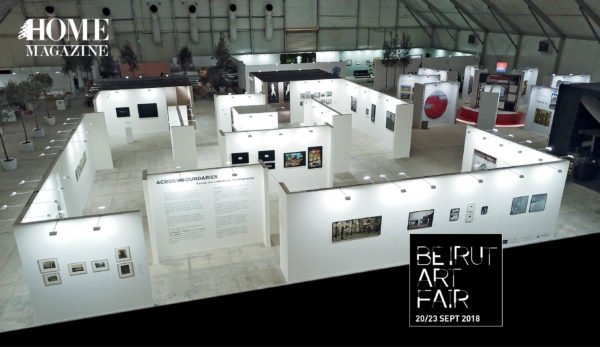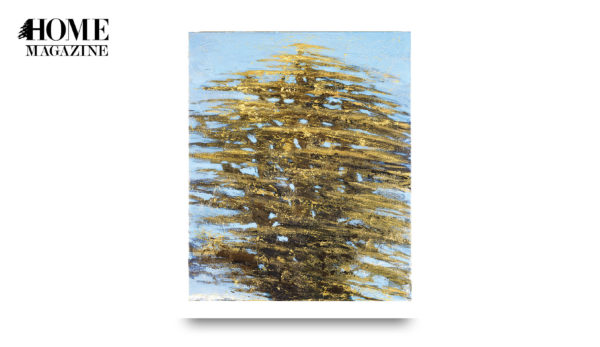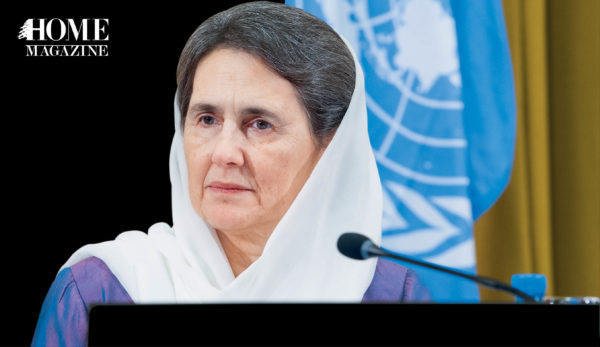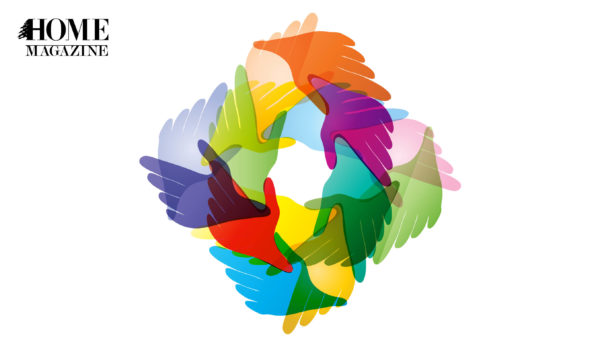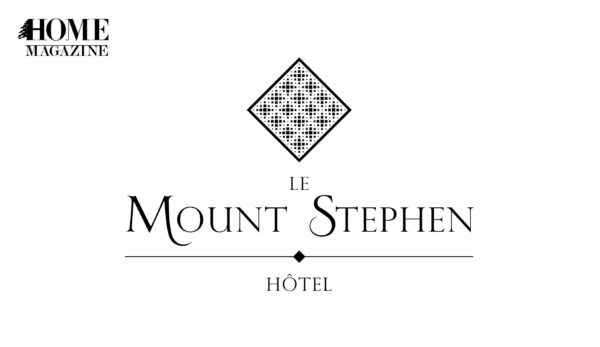Photos from the family archives collection of Khaled Daouk
Arrival in Lebanon
In researching articles on Lebanese families for HOME, it has been fascinating to discover the origins of these families—from such diverse places in the world as Yemen, Russia and Greece—considering that Lebanon has generally been noted for its emigration, rather than its immigration. Most sources suggest that the Daouks (Daouk, Al Daouk, Daooq الداعوق– داعوق ‚) came from Morocco. But according to Khaled Daouk, a family historian, the Daouk family can trace its origins even further back to historical Andalusia on the Iberian Peninsula, where the Muslims ruled from 711 to 1492.
 The promotional letterhead for the Daouk Freres Factory
The promotional letterhead for the Daouk Freres Factory
As the Christian kingdoms gained control of different parts of the Iberian Peninsula from the Muslim Moors in a series of wars called the Reconquista, they imposed increasingly repressive measures against non-Christians, leading to decrees that forced them to convert, be killed or flee. Khaled Daouk asserts that the Daouks fled with other Muslims and Jews from Andalusia to Morocco, where these exiles formed a republic. The native population of Morocco resented the disruptive influx from Andalusia so that the Daouks, along with many other Andalusian Muslims and Jews, again fled, this time across North Africa. While some of the Daouks settled in Egypt, Sudan and Gaza, others eventually arrived in what is now Lebanon, settling together in Wadi Abu Jamil. The Daouks later spread, as well, to Ras Beirut, where the Daouks owned extensive property in the Qoreitem and Bliss Street areas.
There are different accounts of the actual date of the Daouks’ arrival in Lebanon, ranging from 1310 to the 1500s, but it is likely that this can be accounted for by different waves of migration. Drawing on various scholarly sources, Mohamad Daouk explains that the family had a significant enough presence in Beirut by 1350 that it was one of the families that participated in the Seven Families of Beirut agreement that year, along with the Sinno, Kreidiyyeh, Itani, Doughan, Mneimneh and Houry families. The family members at that time were known under the collective name ‘Dawakat’ ( الدواكة ). Through this agreement the seven families agreed to work together to manage Beirut, making provisions to win the trust of other families living there. They also signed an agreement with the Mamluk Sultanate which ruled in Egypt from 1250 until its downfall at the hands of the Ottoman Empire in 1517. In this document, the seven families agreed that they would administer Beirut’s internal affairs, while the Mamluks would handle military affairs within and outside Beirut. “Seven” stems from its Quranic and Islamic significance (the Seven Heavens), which is why the city was walled with seven gates. The Daouks were among the families that became the caretakers of one of the seven gates.

Associations of the Daouk family
The Daouk Family Association was started in the 1930s. It went dormant, but was revived in the 1990s to provide support to members of all branches of the family. The association provides educational, health and financial assistance to members of the family, honors successful students, gives annual Hajj grants, holds annual Ramadan iftars and has developed and continues to maintain a genealogy of the family. Amine Daouk is president and director of the association and Yumna Daouk is its general secretary.
The separate Al Daouk Organization was founded in 2012 by Mohamad Omar Daouk to gather and preserve the Daouk family’s heritage online. The organization dedicates its efforts to ancestors who played an influential role in establishing Lebanon’s modern sovereignty. In 2016, the organization established Archive Lebanon, a website which provides extensive historical coverage of Beirut and Lebanese history available to the public, including many feature pages on Daouk family history as well as a restricted portal for members of the Daouk family.
Most of the Daouks of Lebanon can be traced to three branches of the family. One traces back to Ahmad Bazer Basha, who was the leader of merchants in Beirut, while the other two trace back to Qassem and Hassan Daouk. While not much is known about Hassan’s branch, Qassem’s branch was comprised most notably of real estate investors, horse traders and fishermen who had a thriving fishing industry. A branch of the family is also settled in the Tariq el Jadideh area. They are known for their Daouk Sweets and their renowned Daoukieh, a Lebanese sweet named after the Daouk who created it.

Ahmad Bazer Basha’s son Muhammad was the person who initially built the wealth of the family as an industrialist. He built a foundry to process steel in 1868 and in 1890 he built a technical school attached to the foundry to teach men and women of all sects free of charge. The factory was closed down by the French in 1918 to prevent it from competing against French industries, but the technical school remained. Muhammad had 12 children who together formed seven sub-branches of the family.
Omar and Ahmad Daouk
The most notable member of the family is Omar Muhammad Bey Daouk, who was born in Beirut in 1875. He served a number of important social and political functions under Ottoman rule. In 1906, he was elected a member of the Beirut municipality. And in 1907, Omar Bey led an initiative to fund the teaching of all Beirut children. In 1907, he also became a member of the Makassed Islamic Charitable Society of Beirut which was established in 1878 and to this day provides scholarships, health, education and social support to the people of Beirut. In 1913, he became the president of Makassed for the first time. While he served in that position only for a year, he pushed his agenda of prioritizing health and education. In 1913, Omar was also elected as the president of Beirut’s Chamber of Commerce which came to be known as Beirut’s Chamber of Commerce and Industry in 1914, a position he held for the rest of his life. He was very active during the famine of Beirut in 1914-1918, which took the lives of some 200,000 people. He opened soup kitchens in all of Beirut through Makassed. In 1915, Omar was appointed mayor of Beirut and oversaw the provision of food to the Christians of Mount Lebanon, for which he was awarded the Papal Cross.
 Omar Beik Al Daouk
Omar Beik Al Daouk
Recognizing the imminent demise of the Ottoman Empire, Omar negotiated the peaceful withdrawal of Ottoman forces and became the first and last president of the Arab State of Beirut from October 1918 until the institution of the French mandate in 1920. While he opposed the French mandate, he accepted he had to work with it and participated in drafting the post-Ottoman constitution in 1926.
In 1927, he was one of the founders of the committee to educate the children of rural families. He became president of this committee until his death in 1949, leaving a legacy of 102 schools in the rural areas that were run by this committee. He also became president of Makassed for the second time in 1934, a position he held until his death in 1949.
Ahmad Muhammad Daouk, born in 1892, was 17 years younger than his brother Omar. He studied in both Lebanon and France, and then briefly worked in Cairo. From 1919 to 1926 he worked for Sharif Hussein of Mecca who was at the time also the King of Hejaz. In time, he became responsible for all oil-related developments. Returning to Lebanon in 1926, he joined his brother Omar in both Makassed and the municipality of Beirut. In 1940, Ahmad was appointed as minister for Public Works and Post Telephone and Telegraph. He was then appointed as prime minister by the French in 1941, but resigned soon after to put pressure on the French to withdraw. He was the first Lebanese Ambassador to France from 1944 to 1958 and again became prime minister in 1960, forming an interim government to halt the political rift of 1960. As prime minister, he redistributed seats within Lebanon’s parliament to restore political balance between Lebanon’s two main political factions. Ahmad left Lebanese politics in 1961 and returned to business as well as to initiatives with UNESCO to raise awareness of Lebanon’s heritage and historical sites.
Both Omar and Ahmad were honored with streets named after them in the Beirut central district. Omar Daouk Square, with its bust of Omar Daouk, serves as a special tribute to this important Lebanese leader.
 Daouk Factory on Bliss Street
Daouk Factory on Bliss Street
Other notable members of the Daouk Family:
Ameena Itani Daouk was a prominent real estate investor, developer and agriculturalist in Ras Beirut who owned vast lands in Mount Lebanon, where she engaged with local Druze farmers in agriculture. Her most notable real estate property was the 40,000 square meters stretch of land on Sadat Street, between Abou Taleb and Emile Edde Street, which formerly housed various villas of members of her branch of the Daouk family.
Amine Mohammad Daouk is a civil engineer and also served as a senior lecturer at the American University of Beirut. He was the president of Makassed from 2000 to 2018.
Bashir Jamil Daouk, Ph.D., founded the publishing company Dar Attalia and the monthly magazine Dirasaat Arabiyya, from which he denounced state censorship and the commercialization of publishing and expressed his support of Pan-Arabism, Arab nationalism, Nasserism, women’s rights and opposition to racism. After 25 years in self-imposed exile in Paris, he returned to Lebanon in 1999 and continued to be an outspoken proponent of freedom and justice until his death in 2007.
Dr. Ghaleb Daouk is a pediatric nephrologist affiliated with Boston Children’s Hospital and assistant professor of pediatrics at Harvard Medical School.
Hassana Fathallah-Daouk, wife of Hassan Omar Daouk, was a prominent philanthropist member of several cultural organizations, such as the Lebanese Red Cross, and was president of the Child and Mother Welfare Society.
She has a street named after her and was awarded the Lebanese Golden Medal of Achievement, the highest civilian honor awarded by the Republic of Lebanon.
Khaled Yusuf Daouk, a Daouk family historian, was co-owner and CEO of Spinneys, and the honorary consul of Ireland for more than 20 years. He coauthored a recently published book with Dr. Hassan Halaq about the industrial, economic and commercial revival of Beirut before World War I, in which the Daouk family played a significant role:
دور البيارتة في النهضة الصناعية والاقتصادية
والتجارية في بيروت المحروسة ١٨٤٠ -١٩١٤ (The Role of Biarte (Beirutis) in the Industrial, Economic and Commercial Revival in Beirut Al-Mahrousa (1840- 1914)).
Izzat Daouk was the first Lebanese businessman to internationally commercialize cosmetics and beauty care from Lebanon and founded the Izzat Daouk franchise.
May Daouk is an accomplished interior designer who has applied her eclectic style of design to a number of projects, including a historical villa in Ashrafieh which has been featured in many magazines.
Mohamed Khalil Daouk began to retail stationery in Beirut in 1885, expanding his business to paper production as the demand for all types of paper products increased with Beirut’s economic boom. In 1935, the company agreed to supply newsprint to An-Nahar newspaper on five-year credit terms, helping the two-year-old paper develop into the powerhouse it became. Today, the fourth-generation family-owned paper company is now more than 130 years old, with a presence in the United States as MKD International, Inc.
Sheikh Muhammad Omar Daouk worked in Lebanon and Palestine, using his considerable mathematical and mechanical expertise. In 1949, he founded ‘Ibad Ar-Rahman. In keeping with his deep religious beliefs, he refused to take up arms against those of other religions. In 1979, he left Lebanon to the UAE. where he was granted citizenship. He became a prominent cleric (Sheikh Muhammad) and founded a printing press and publishing company for religious literature.
Mohamad Omar Daouk (b. 1996) is a lawyer and construction lawyer and the founder of the Al Daouk Organization and Archive Lebanon. He has developed a 250-year interactive genealogy of the Daouks on the Daouk portal, going back to 1750.
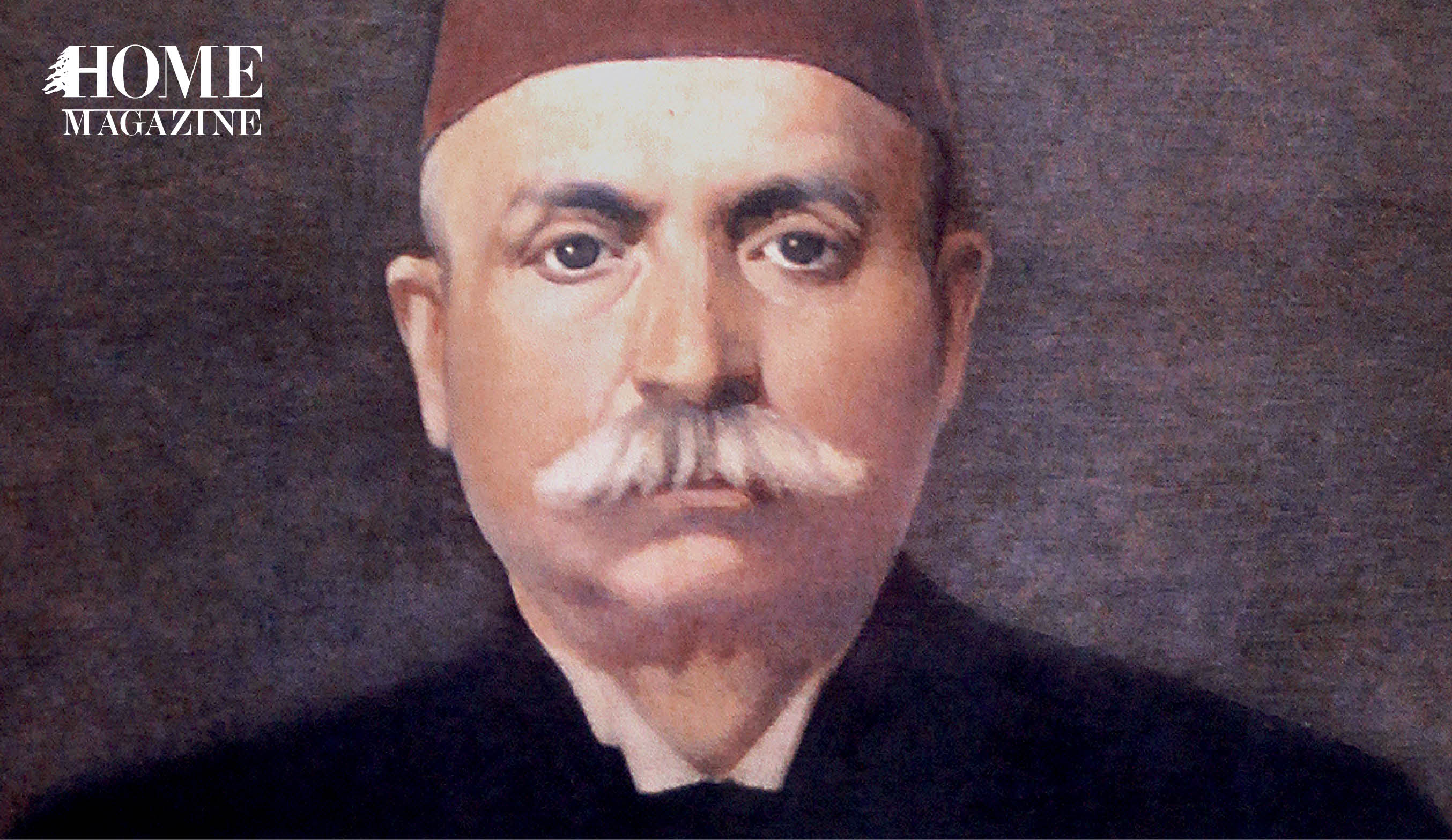 Mohamad Abou Omar Al Daouk
Mohamad Abou Omar Al Daouk
Walid Anis Daouk is an important leader in the Lebanese banking sector, heading BLC Bank and Fransabank. In 2011, he became Lebanon’s Minister of Information for four years.
HOME gives special thanks to Khaled Yusuf Daouk, Amine Mohammad Daouk, Mohamad Omar Daouk and Yumna Daouk for their help in providing information for this article through interviews and online communications. They have all played important roles in preserving and documenting the legacy of the Daouk family and maintaining ties across the different branches and generations of the family in Lebanon and abroad.
For more info:
https://www.facebook.com/groups/DAOUK/
https://www.aldaouk.org
https://www.archivelebanon.com















